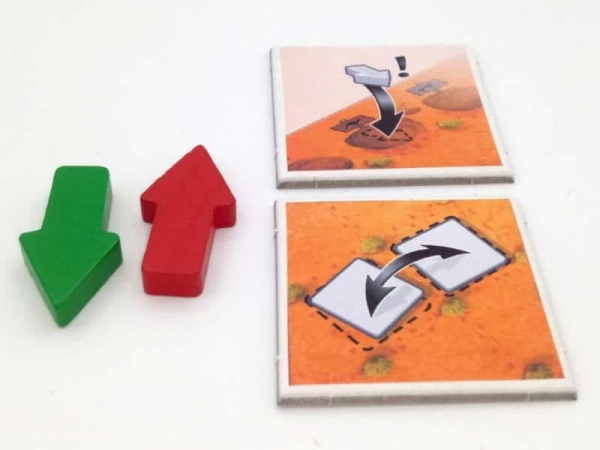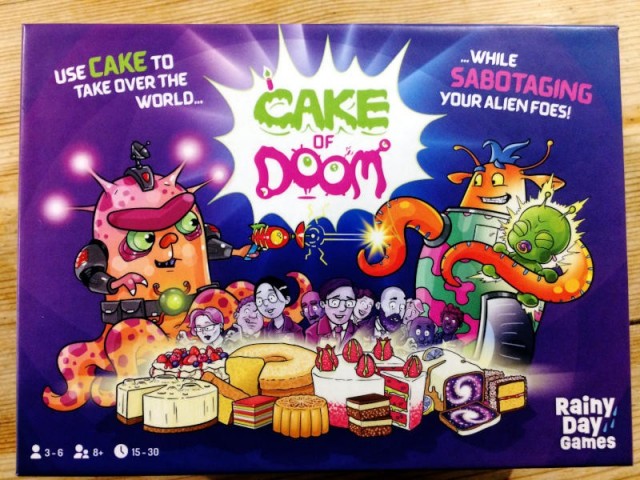The bitumen road had given way to a well-maintained dirt track. My monster road train was stubbornly ploughing on, throwing up red dust behind it in giant plumes. From time to time I could see kangaroos, wombats, spiny anteaters, platypuses and dingos. I even caught a rare glimpse of a Tasmanian devil. It was very busy in this arid landscape. In fact, it was so busy that it felt like there was an Outback Crossing by Bruce Whitehill from Mücke Spiele.
As the publishing arm of the German board game component retailer Spielmaterial, Mücke Spiele is a relatively small company, mostly releasing games that won design competitions they run. Even so, according to Board Game Geek, the publisher has 77 games to its name, including ¡Adiós Calavera!, Namibia and, of course, Outback Crossing.
Animal Crossing
Now, I have no idea how well Outback Crossing represents the actual distribution of Australian wildlife in the Outback, but in the game, you'll be placing tiles representing the aforementioned kangaroos, wombats, spiny anteaters, platypuses, dingos, Tasmanian devils and even emus into a 5x5 or 6x6 grid, depending on player count. Your aim is to place them so that you end up with pairs, triplets or more of the same animal in the same row, column or even diagonal to score lots of points. You can also score by placing one of each animal into a row, column or diagonal.
The problem is, you all play on the same, shared board and at the beginning of the game, nobody controls any of the rows, columns or diagonals. If you want to claim a row, column or diagonal as your own, you have to place one of your markers, which are limited. However, then your turn is over. Alternatively, you can just place an animal tile, which you randomly draw from a lovely and spacious cloth bag. That sounds like an easy choice, but is more tricky than you think.
To being with, nobody is likely to place any of their markers, because the board is still empty. As the rows, columns and diagonals fill in, the race to place your markers heats up. You need to get the timing right. Place your marker too early and other players may really mess up the row, column or diagonal that you hoped to score. Place it too late and you're left with whatever is left, which doesn't tend to be very good.
Crossing Each Other
At the same time, given that everyone is trying to score for rows, columns or diagonals, every tile you place isn't necessarily just going to help you score, but potentially also another player. So you have to be choosy where you place the tiles you draw. Once everyone has placed a few of their markers, every decision becomes much more tricky.
So, already, there is a fair bit of player interaction. You can easily ruin someone's row, column or diagonal by placing animals that they don't want. It gets worse though. Some of the tiles aren't animals, but give you a one-off action. These include swapping two tiles on the board, moving a tile to an empty slot or even removing a tile completely. All of these actions can increase your points while reducing someone else's. There are also tiles that allow you to move one of your markers to an empty space or force you to place one. All of this creates a lot of delicious chaos.
 Two of the arrow tokens and two action tiles from Outback Crossings (photo courtesy of Mücke Spiele)
Two of the arrow tokens and two action tiles from Outback Crossings (photo courtesy of Mücke Spiele)
There is another clever mechanism in Outback Crossing that hugely affects the level of player interaction. Every row, column and diagonal can be controlled by two different players. So you can form a partial alliance with another player, by claiming the same row, column or diagonal that they have put their marker on. Now both of you are working together to score as many points as possible. That is, of course, only until the claimed area isn't scoring as highly as hoped and one of you gets the tile that allows them to move their marker somewhere else. Suddenly the alliance is broken and the scoring area is abandoned.
Outback Fun
Outback Crossing doesn't have many rules, so is pretty easy to learn. The depth comes from the decisions people around the table make and the luck of the draw, which, by the way, you have some control over. Everyone starts with a randomly drawn tile. On their turn, players can either play the tile in front of them or take one from the bag. It's still pretty random as to what choices you have, but at least it feels like you have a little bit of control.
The artwork is quite cartoony, the tiles are thick cardboard, there are wooden score markers and the cloth bag is lovely. Add to that the rules simplicity, amount of randomness and game length and you have a really fun family game. A bit like the popular classic German game Mühle or something like Checkers, Outback Crossing will not get boring for a long while. The player count is so broad that you can play it as a couple as well as at family gatherings or with friends down the pub. It's really versatile and I'm so pleased that I got a chance to play it.
 Games
Games How to resolve AdBlock issue?
How to resolve AdBlock issue? 
















